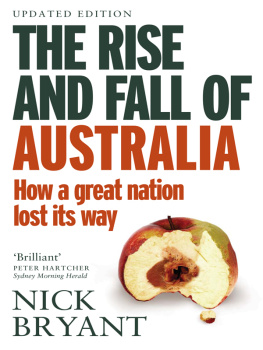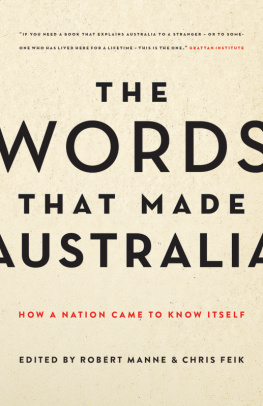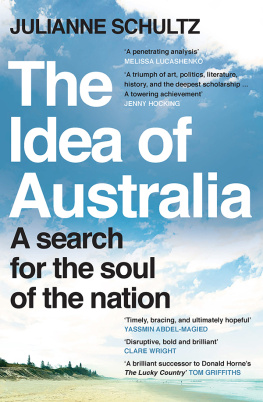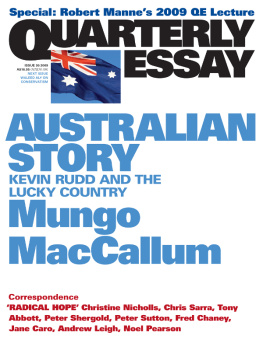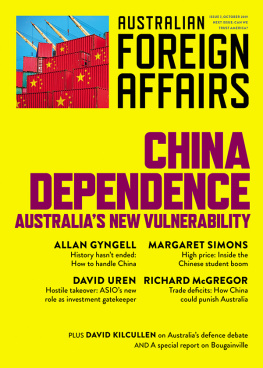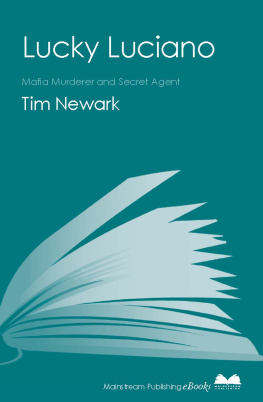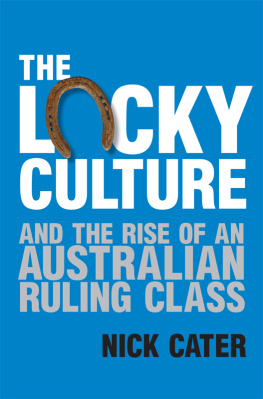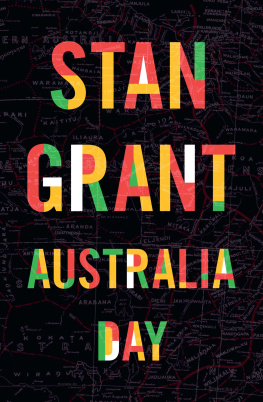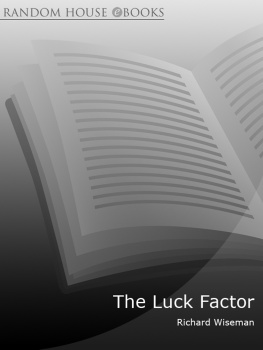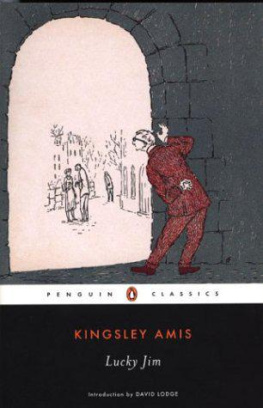PENGUIN BOOKS
The Lucky Country
Donald Horne was born in 1921. He was a diplomatic cadet, journalist, magazine editor and academic. In 1973 he joined the staff of the University of New South Wales and in 1987 was appointed professor emeritus. He was Chancellor of the University of Canberra, Chair of the Australia Council, and also held office in other cultural, educational and social organisations. He wrote twenty-eight books and was a frequent contributor to Australian and international newspapers, magazines and journals. He died in 2005.

ALSO BY DONALD HORNE
The Permit
The Education of Young Donald
Southern Exposure
God is an Englishman
The Next Australia
But What if There Are No Pelicans?
The Story of the Australian People
Money Made Us
Death of the Lucky Country
His Excellencys Pleasure
Right Way, Dont Go Back
In Search of Billy Hughes
Time of Hope
Winner Take All
The Great Museum
Confessions of a New Boy
The Public Culture
The Lucky Country Revisited
Portrait of an Optimist
Ideas for a Nation
The Intelligent Tourist
The Avenue of the Fair Go
An Interrupted Life
Into the Open: Memoirs 195899
Looking for Leadership
10 Steps to a More Tolerant Australia
Dying: A Memoir (with Myfanwy Horne)
Donald
Horne
The Lucky
Country
With an Introduction by
HughMackay
PENGUIN BOOKS
PENGUIN BOOKS
Published by the Penguin Group
Penguin Group (Australia)
250 Camberwell Road, Camberwell, Victoria 3124, Australia
(a division of Pearson Australia Group Pty Ltd)
Penguin Group (USA) Inc.
375 Hudson Street, New York, New York 10014, USA
Penguin Group (Canada)
90 Eglinton Avenue East, Suite 700, Toronto, Canada ON M4P 2Y3
(a division of Pearson Penguin Canada Inc.)
Penguin Books Ltd
80 Strand, London WC2R 0RL England
Penguin Ireland
25 St Stephens Green, Dublin 2, Ireland
(a division of Penguin Books Ltd)
Penguin Books India Pvt Ltd
11 Community Centre, Panchsheel Park, New Delhi 110 017, India
Penguin Group (NZ)
67 Apollo Drive, Rosedale, North Shore 0632, New Zealand
(a division of Pearson New Zealand Ltd)
Penguin Books (South Africa) (Pty) Ltd
24 Sturdee Avenue, Rosebank, Johannesburg 2196, South Africa
Penguin Books Ltd, Registered Offices: 80 Strand, London, WC2R 0RL, England
First published by Penguin Books Australia Ltd, 1964
This sixth edition published by Penguin Group (Australia), 2008
Copyright Myfanwy Horne 1964, 1965, 1967, 1971, 1998, 2005
Introduction to the Sixth Edition Hugh Mackay
The moral right of the author has been asserted
All rights reserved. Without limiting the rights under copyright reserved above, no part of this publication may be reproduced, stored in or introduced into a retrieval system, or transmitted, in any form or by any means (electronic, mechanical, photocopying, recording or otherwise), without the prior written permission of both the copyright owner and the above publisher of this book.
penguin.com.au
ISBN: 978-1-74253-157-1
CONTENTS
INTRODUCTION TO THE SIXTH EDITION BY HUGH MACKAY
T he ABC broadcaster Peter Thompson once shared a taxi with Donald Horne and found him in an exasperated state. Horne was voicing, yet again, his frustration at having to listen to people misinterpreting his phrase the lucky country. It had become an albatross around his neck.
I wish Id never used it, he said to Thompson, perhaps rather disingenuously.
Never has a book title passed so rapidly into the language as this one. We embraced it from the beginning and incorporated it into our view of ourselves in a way that generally missed Hornes point. He was being ironic and critical, warning us of the serious danger of relying on luck. Yet those who had never read the book thought he was giving the nation a reason to celebrate.
Heres what he actually said, back in 1964:
Australia is a lucky country run mainly by second-rate people who share its luck. It lives on other peoples ideas, and, although its ordinary people are adaptable, most of its leaders (in all fields) so lack curiosity about the events that surround them that they are often taken by surprise. A nation more concerned with styles of life than with achievement has managed to achieve what may be the most evenly prosperous society in the world. It has done this in a social climate largely inimical to originality and the desire for excellence (except in sport) and in which there is less and less acclamation of hard work. According to the rules Australia has not deserved its good fortune.
That quote, from of The Lucky Country, was under the sub-heading Living on our luck. So lucky, to Horne, meant we were lucky to get away with it. Wed succeeded more by good luck than good management. We didnt deserve our luck it just came to us, the way luck does.
But we preferred our own version of the story implied by the title of the book. People just back from a holiday at the beach or in the mountains, struck by Australias natural beauty, would exclaim: We truly live in the lucky country! Journalists and subeditors frequently incorporated the phrase into their headlines and copy. Politicians routinely grafted lucky onto country (the way some of them later did with Muslim and extremist) as if it were a compound noun: luckycountry. Even preachers adopted it: We praise you, O Lord, that we live in the lucky country!
In his Introduction to the fifth edition of the book, Horne alluded to the long misuse of the phrase as if it were praise for Australia rather than a warning and attributed this distortion to the empty-mindedness of a mob of assorted public wafflers.
Some newcomers, perhaps responding to the sentiments of those public wafflers and unaware of Hornes excoriating analysis, took up the refrain: Were so happy to be in the lucky country. Perhaps, for them, lucky meant bright prospects or health and happiness, or perhaps, in their cultures, luck is a virtue or a blessing rather than an accident.
Come to think of it, such ideas are well entrenched in the Australian psyche, too. We applaud winners of school raffles as if their luck is an achievement. Perhaps the inner meaning of Hornes phrase was doomed, from the start, to be interpreted in ways that made us feel more comfortable with it than he intended.
*
Donald Horne born 1921, died 2005 variously described as an academic, journalist, political scientist, philosopher and historian was actually Australias pioneering social researcher, though he himself would have rejected such a mantle. He despised the public opinion research industry, especially for its stultifying effect on politics, based on his early years in the advertizing business where he had seen at first hand how easily market research could kill a good idea and, it must be said, promote a mediocre one. (Though a researcher myself, I share his dismay at the dispiriting effect of research on our public and commercial life especially via those ubiquitous and often ill-conceived focus groups that are treated with far too much reverence by everyone from politicians to marketing executives.)
Yet research was what Horne was best at. His method was both inductive and intuitive, based on piercingly astute observation and a capacity for rational analysis developed under the influence of one of his academic heroes: Professor John Anderson at Sydney University.
Next page

